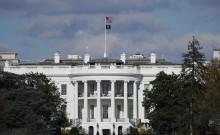
The government of Pakistan's Sindh province banned instant messaging and video conferencing applications - Skype, Whatsapp and Viber, on Thursday to facilitate security operations, triggering angry reactions from users.
The three-month-long ban on the applications was enforced at a meeting to review the law and order situation that was chaired by founding member of Pakistan People's Party (PPP) and Sindh Chief Minister Qaim Ali Shah.
"Terrorists and criminal elements are using these networks to communicate after the targeted operation was launched (against them)," said Information Minister Sharjeel Memon, reported PTI.
The announcement also triggered criticism from Interior Minister Chaudhry Nisar Ali Khan. He issued a statement in Islamabad saying the federal government and his ministry were against the ban.
"Soon after taking charge of the interior ministry I have stopped the tradition of blocking mobile networks on certain occasions," he said, adding that "such steps have never been fruitful".
The PPP maintained that it was a small price to pay for internal security. "If we can cleanse (Karachi) from criminals. Back to trunk calls, telegraph and chitthi for 3 months!" party leader Sharmila Farooqi tweeted.
The Sindh government will also ask the federal government to keep a check on the sale and possession of illegal SIMs as well. The Qaim Ali led government will soon be conducting operations against individuals who possess illegal weapons. Such measures come in the wake of regular explosions in the district.
This year, there have been 86 bomb blasts in Sindh district by various militant outfits. More than 160 people have been killed and 740 injured in the blasts, according to South Asia Terrorism Portal.
Interestingly, Pakistan is among the bottom 10 of the 60 countries in the Freedom On The Net 2013 report, measured by an independent watchdog Freedom House.








